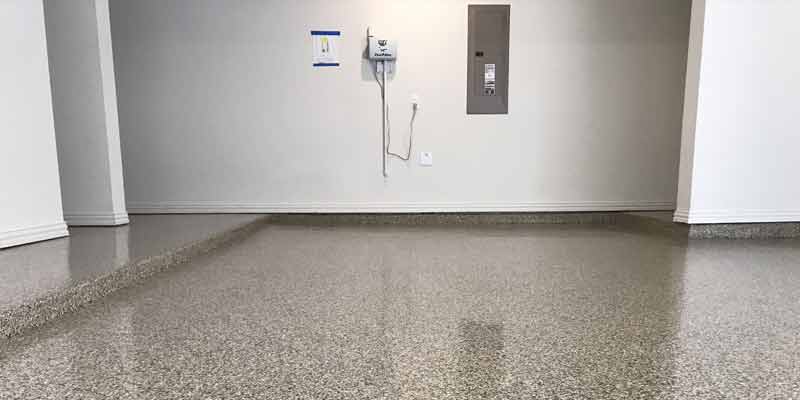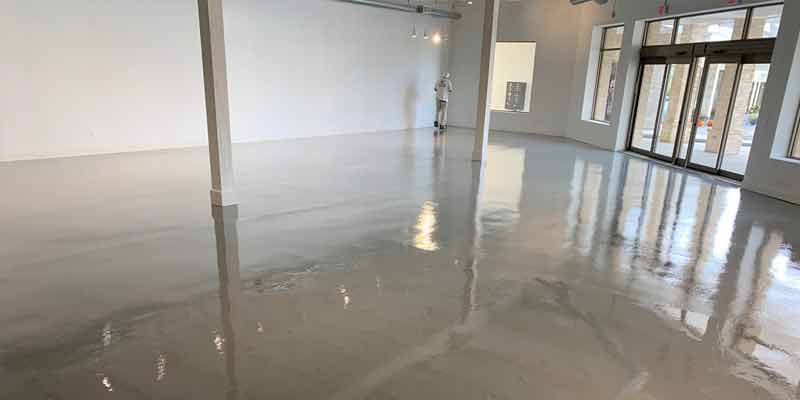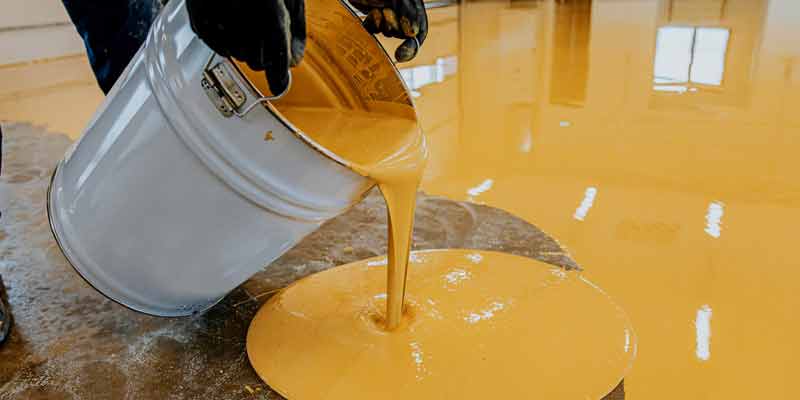Why Does Epoxy Flooring Come in Different Thickness Levels?

One of the most important things to consider when having epoxy flooring installed is the thickness of the epoxy. The thickness of the epoxy will determine how durable and long-lasting the flooring will be. However, many people are unaware of this and install too thin flooring that does not last as long as it should. This article will discuss the different thickness levels of epoxy flooring and how to know which one is right for your needs.
Table of Contents
What is an Epoxy?

Epoxy is a type of resin that is used in many different applications. It is known for its durability and strength. Epoxy flooring is created by mixing the resin with a hardener. This mixture is then applied to the floor and allowed to cure.
The thickness of epoxy flooring is measured in millimeters. The most common thickness levels are 2mm, 3mm, and 4mm. There are also 5mm and 6mm thicknesses available, but they are not as common. The thickness of the epoxy will determine how strong and durable the flooring is. A thicker epoxy will last longer and be more resistant to wear and tear than a thinner one.
Why Do People Choose Thin Epoxy Flooring?

There are a few reasons why people might choose thin epoxy flooring. The first reason is cost. Thin epoxy is cheaper to install than thick epoxy. This is because less material is used.
The second reason is that thin epoxy can be installed faster than thick epoxy. This is because there is less material to apply and cure.
The third reason is that thin epoxy provides a high-gloss finish. This is because the thinner the epoxy, the more reflective it will be.
What Are The Disadvantages of Thin Epoxy Flooring?
There are a few disadvantages of thin epoxy flooring. The first disadvantage is that it does not last as long as thick epoxy. This is because it is not as durable and can be easily damaged.
The second disadvantage is that it is not as resistant to wear and tear. This means that it will show signs of wear sooner than thick epoxy.
The third disadvantage is that it can be difficult to repair if it is damaged. This is because the thin layer of epoxy can be difficult to patch without leaving a visible seam.
What Are The Advantages of Thick Epoxy Flooring?
There are a few advantages of thick epoxy flooring. The first advantage is that it lasts longer than thin epoxy. This is because it is more durable and can withstand more wear and tear.
The second advantage is that it is more resistant to wear and tear. This means that it will show signs of wear later than thin epoxy.
The third advantage is that it can be easier to repair if it is damaged. This is because the thick layer of epoxy can be patched without leaving a visible seam.
How Do I Know Which Epoxy Flooring Thickness Is Right for Me?
The best way to know which epoxy flooring thickness is right for you is to consult with a professional. They will be able to assess your needs and recommend the best thickness for your situation.
When choosing an epoxy floor thickness, remember to keep in mind the cost, installation time, durability, and repairability. Choose the thickness that best fits your needs and budget. You don’t want to spend more money than necessary, but you also don’t want to sacrifice quality or durability.
What Are the Risks of a DIY Epoxy Floor Installation?
If you are considering a DIY epoxy floor installation, there are a few things you should know. The first thing is that it is important to follow the instructions carefully. If you do not mix the epoxy properly, it will not cure correctly and will not adhere to the floor.
It’s also important to make sure the floor is clean and free of debris before you begin. Any dirt or dust will prevent the epoxy from bonding to the floor.
Finally, be aware that epoxy fumes can be harmful if inhaled. It is important to work in a well-ventilated area and to wear a respirator mask when working with epoxy.
DIY epoxy floor installation is not for everyone. If you are not comfortable with following instructions or working with chemicals, it is best to leave it to the professionals.
Installing epoxy flooring is a big job, but it’s one that most do-it-yourselfers can do. Just be sure to take your time, follow the instructions, and work in a well-ventilated area. You can have a beautiful, durable epoxy floor with a little care and attention.
How to Find a Reputable Epoxy Flooring Contractor
If you decide to hire a professional to install your epoxy floor, you should keep a few things in mind. First, be sure to get multiple quotes. This will give you a better idea of the going rate for epoxy floor installation.
Second, ask for references. A reputable contractor will be able to provide you with a list of satisfied customers.
Finally, be sure to read the reviews. Not all contractors are created equal. Be sure to read online reviews and check with the Better Business Bureau before hiring a contractor.
Epoxy is one of the most popular flooring options on the market today. It is durable, beautiful, and easy to care for. If you are considering epoxy flooring for your home or business, be sure to consult with a professional to get the best results.
